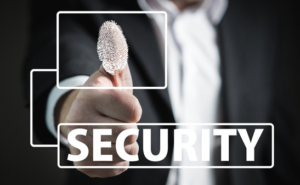Many times, in life we know we should do something before it is too late. We know our automobile battery is weak, but we wait until we are in a hurry to get to an important appointment and our vehicle will not start. We know our freezer in the basement is old, but we wait until it stops working and we lose all its contents. We know we should do a better job of protecting our identity, but we find out it has been assumed by someone else. With all these situations, a little extra effort would have prevented a personal predicament.
Proactive people sometimes are called neurotics in their own way, but they probably do not have as many personal predicaments as procrastinators. Of the three examples listed above, having your personal identity stolen is the most serious. There are several ways that you can prevent identity theft. With extra effort on your part, you can assist in guarding your privacy.
The following are some ways to guard against your identity being stolen:
Secure your Personal Records: Ensure your personal information is safely secured, especially if you have roommates or employ outside help.
- Protect your trash by tearing up or shredding sensitive materials like credit applications or credit offers, insurance forms, medical statements, charge receipts, checks and bank statements, and canceled or expired credit and ATM cards.
- If you have people working in your home, make sure your financial papers, credit cards, and other personal information is locked away.
- At work, verify your personnel records are maintained securely and sensitive records are shredded during disposal.
- Deposit your outgoing mail at the post office or in a post office collection box—not in an unsecured bin or mailbox—and collect your incoming mail promptly. Pick up new checks at the bank rather than having them mailed.
- Do not leave your credit, debit, or ATM card receipts behind, like in a bank or a store, and never throw them away in a public location. Always shred them or cut them up when you have finished using the card.
Protect Your Personal Information Online: Do not put personal information, such as your birth date, on a computer home page, personal computer profile, or social media website. Never provide personal or financial information unless a website site is secure. (Look for a security symbol such as an unbroken padlock and a URL that starts with “https” rather than simply “http.” Right-click the padlock to make sure it is up to date.)
Restrict What You Carry: Carry only the personal identification, credit cards, and debit cards that you need. Keep your little-used identification and cards in a secure place.
Guard Your Social Security Number: Keep your Social Security card in a secure location and give out your Social Security number only when absolutely required. Do not carry your Social Security card with you.
Use Passwords and Change Them Regularly: When you use passwords for your various online accounts, use ones that are not easily guessed or found. Avoid using obvious passwords like “123456789,” “qwerty,” your mother’s maiden name, the names of your children, spouse, or pets, or other personal data.
Find Out If Your Records Were Affected After a Data Breach: If you learn a company had a data breach that may have affected your records, find out what kind of information was taken. If it was your credit card information only, monitor those accounts closely for fraudulent charges. You may choose to contact the credit card company and request they issue you a new card with a different account number.
Safeguard Against Tele-Theft: Do not give personal information over the phone unless necessary, and never give it out unless you initiated the phone call. If someone contacts you and says they are calling from someplace like your bank, credit card company, or the IRS, ask for a number to call them back—and then make sure it’s really an official number.
Anytime you’re asked to provide personal information by telephone, through the mail, or over the Internet, be wary. Even if you initiated the contact, confirm that the other party is legitimate. Call the organization’s customer service number and validate the exchange before you give any personal information. Also, ask how the information will be shared with others and request information be kept confidential.
Protect Your Computer: Take the following steps to protect your identity as stored on your computer:
- Use a firewall and secure browser
- Never download files from strangers
- Maintain current virus protection
- Password-protect any personal or financial information
- Avoid automatic log-in processes (which store your account name and password)
- When you dispose of your computer, delete personal information and completely overwrite the hard drive
Be Alert When Travelling: When you travel, leave your checkbook, Social Security card, and other unnecessary items in a safe place at home. If you take a laptop, smartphone, or other device on your trip, make sure it’s secure. It should be password-protected and have the latest Internet security software installed. Ask your hotel to recommend reputable Internet cafes or Wi-Fi spots before you do any online connecting. Also, erase your online history after using a public computer.
Be Attentive During Tax Time: If you get an email from the Internal Revenue Service (IRS) asking for personal or financial information, delete it or send it to the IRS at phishing@irs.gov for investigation. Do not be fooled by links to what looks like the real IRS website—that too could be a fraud. The IRS does not initiate contact with taxpayers by email, text messages, or social media to ask for personal or financial information like PIN numbers, passwords or similar access information for credit cards, banks, or other financial accounts. When in doubt, contact the IRS.
You may have friends or family members who have fallen victim to identity theft. It is one of the fastest growing crimes in America. Be proactive! Take time to protect your identity and that of your underage children, if you are blessed with them. Some things in life are not preventable such as, floods, hurricanes, and growing older, but we can all do a better job of preventing identity theft.



I am not rattling excellent with English but I get hold this really easygoing to translate.